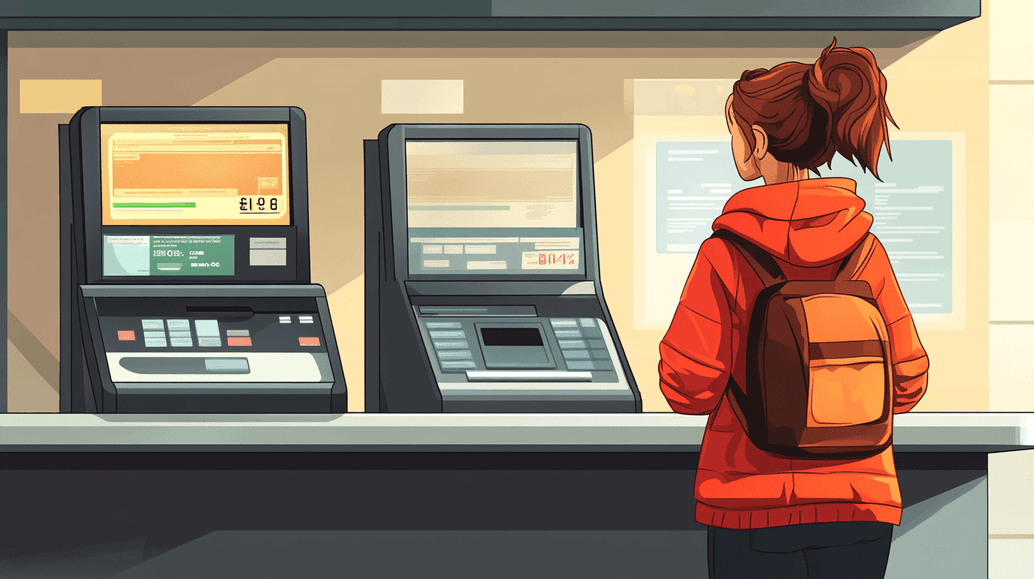Can a Foreigner Open a Bank Account in the USA
Contents

It is hard to participate in modern society without having at least one bank account. However, people of color are around 60% less likely to be banked compared to white households. Why? The reasons, according to the GAO report, are the high maintenance fees and the deep-rooted bias prevalent in the US bank system. But there's another problem that hits newcomers to the US.
Can a foreigner open a bank account in the US? Yes, but meeting all the qualification requirements can be challenging and require a lot of paperwork. And yet, lots of individuals without US citizen status embark on this journey every day. In this article, we'll explain the challenges, the eligibility criteria, and the alternatives to opening an American bank account if you’re a foreigner.
Requirements for a Foreigner Opening a Bank Account in the US

To open a bank account, you need to provide a number of documents. These include:
- Proof of address: A utility bill, lease agreement, or similar document.
- Residency documents: A visa or Green Card proving your right to remain in the US.
- A primary ID: A foreign passport with your photo, a Border Crossing Card, a US non-Immigrant Visa, a certificate of Canadian citizenship, or a consular ID card.
- A secondary ID: Driver's license, debit or credit card by Visa or Mastercard, or a store credit card from a big retailer.
- Tax Identification Number: Either a Social Security Number (SSN), Individual Taxpayer Identification Number (ITIN), or Foreign Tax Identification Number (FTIN).
This last item on the list is the most important one, as virtually any bank or credit union requires an SSN or ITIN to confirm your identity and prevent fraud. Tax identification Numbers are also a key part of federal regulations that oblige banks to verify that account holders meet legal requirements. Additionally, banks must report earnings to the IRS using your taxpayer identification number on accounts that earn interest. While you may theoretically find a financial institution that offers alternative options, having this document greatly simplifies the process of opening a non-resident alien bank account.
As for proof of a US address, it is similarly crucial for identity and account verification, as it confirms a person's valid residency in the country. Banks use this information to maintain accurate contact information and send account statements, as well as for anti-fraud and anti-money laundering measures.
Types of Bank Accounts Available for Foreigners

Checking Accounts
Checking accounts are designed for everyday use. They include a debit card for purchases and ATM access, allowing you to deposit and withdraw money as needed. Many checking accounts come with online banking, bill pay, and check-writing features. However, they typically don't earn interest, so they're best used for routine expenses.
Savings Accounts
Savings accounts help your money grow over time by earning interest. Your withdrawal options may be limited compared to checking accounts, but considering that the goal here is to save money for future needs or emergencies, this is hardly a problem.
Business Accounts
To open a US business bank account as a foreigner, you’ll typically need to form a US-based LLC or Corporation and obtain an Employer Identification Number (EIN) from the IRS. Then, you have to provide your business formation documents, EIN confirmation, passport, and operating agreement to the bank. To simplify the process, choose a bank that often deals with international clients, like Chase or Bank of America.
Challenges and Considerations

Can a visitor open a bank account in the USA without a credit history? Sure. If you want to open a basic checking or savings account, there’ll be no problem. In this case, banks focus more on verifying your identity, while credit history comes into play when applying for a loan or a credit card.
Moreover, it’s even possible to open a bank account without a Social Security Number or ITIN (unless you want an interest-bearing account). On the other hand, an ITIN is mandatory for savings accounts because even if you just make $10 in interest, you must still pay taxes in accordance with US financial law.
Some immigrants might face additional challenges based on their country of origin, immigration status, or other reasons. Here are the typical reasons your application for a bank account for foreigners might be rejected:
- The source of income;
- The native country;
- Forms of the provided identification documentation;
- The job, such as any non-US leadership obligations, power, or influence;
- Suspicious activity in accounts or financial products and services used earlier.
Luckily, some banks are more flexible when it comes to opening a bank account for overseas visitors. These banks typically have services tailored to international clients, but they might have special conditions as well. These include Chase Bank, Bank of America, Wells Fargo, HSBC, and TD Bank. The usual requirement is to provide a passport, a secondary ID, proof of address, SSN or ITIN, and an opening deposit.
As for the additional charges and payments on bank accounts for non-residents, you should keep in mind foreign transaction fees if you plan to send or receive money abroad. These typically range from 1% to 3% of the transaction amount. Additionally, foreigners who frequently transfer money internationally may face higher fees for outgoing or incoming transfers, so you better check your bank’s policies on transfer fees in advance.
Alternatives to Traditional US Bank Accounts

Even if you don’t qualify for an American bank account, don’t worry. There are some alternative options:
Use an International Bank
Some global banks like Citibank and Charles Schwab make it easy to open a bank account as a non-resident. They have offices around the world, so expats have no problem accessing funds both in the US and their home countries.
Benefit from a Correspondent Account
In some cases, your home country’s bank may have a partnership or “correspondent banking” relationship with a US bank. Your bank may be able to use its existing relationship with the American bank to facilitate or speed up the account opening procedure. These partnerships allow banks to offer services abroad by acting as an intermediary, streamlining paperwork, and reducing the need for face-to-face meetings. Santander Bank, Deutsche Bank, and HSBC all offer this feature to their cardholders.
Use Digital Banks
These banks usually don’t have any physical branches, so they charge lower fees compared to conventional banks. Most neobanks are fintech firms that collaborate with banks to provide their products. Wise, Revolut, and Payoneer offer multi-currency accounts, low-cost international transfers, and online account set-up with no need to visit a physical branch in the US, making them a good alternative for non-citizens.




